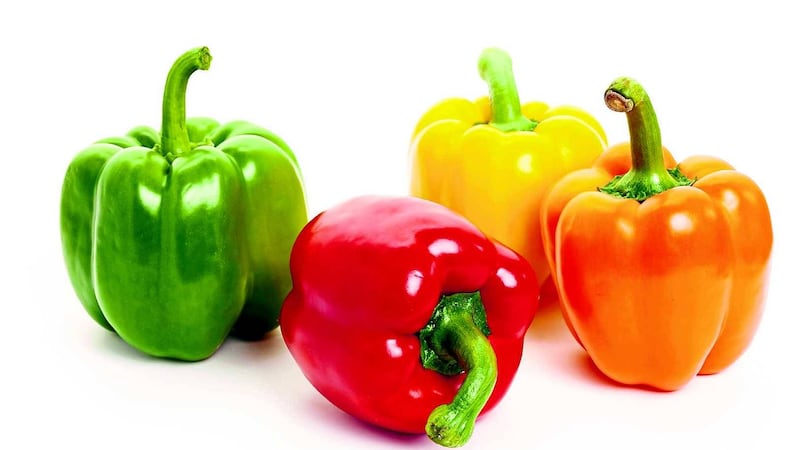Humans require carotenonioids for everyday health and by all accounts we are not consuming enough, writes Roisin Armstrong
GOOD nutrition is so important for the best possible chance of a healthy life. We rely on food to provide a constant supply of not just fuel for energy, but also vitamins, minerals and trace elements which allow the continual metabolic reactions that carry on in our bodies endlessly, to keep us upright, alert, functioning and hopefully healthy.
One nutrient that we absolutely require are carotenoids, these are natural pigments found in certain plants. Carotenoids provide the bright red, orange, or yellow colouration of many vegetables, from green grasses to red beets, to the spectacular yellows and oranges of bell peppers. They serve as antioxidants, and are converted into vitamin A within the body.
There are more than 600 known natural carotenoids, all of them synthesized only in plants. Some of the more common are lutein, zeaxathin and beta-carotene.
Right now, you probably have about 10 different carotenoids circulating through your bloodstream. All organisms whether bacteria or plants that rely on the sun for energy contain carotenoids, these are antioxidants therefore helpful in protecting us from the damage caused in our bodies by free radicals. One carotenoid that is becoming increasingly popular is Astaxanthin, it is by far the most powerful carotenoid antioxidant when it comes to free radical scavenging: astaxanthin is 65 times more powerful than vitamin C, 54 times more powerful than beta-carotene, and 14 times more powerful than vitamin E. Unlike beta carotene and lycopene, Astaxanthin crosses the blood-brain barrier and the blood-retinal barrier, bringing antioxidant and anti-inflammatory protection to your eyes, brain and central nervous system and reducing your risk for cataracts, macular degeneration, blindness, dementia and Alzheimer's disease. Astaxanthin's unique 'antioxidative artillery' provides for an impressive array of health benefits, including improving cardiovascular health, stabilising blood sugar, boosting your immune system, fighting cancer, reducing inflammation, improving eye health and even helping protect you from sunburn. Many carotenoids are easily obtainable through a good diet rich in fresh organic produce. However, this powerful carotenoid is harder to come by.
This pigment is the most commonly occurring red carotenoid in marine and aquatic animals and is what gives salmon their characteristic pink colour, it is also found in lobster, prawns, trout, microalgae and yeast. It is thought that we can benefit from this nutrient, for this reason, astaxanthin is currently supplemented by athletes.
Several studies indicate that astaxanthin shows promise for protection against heart disease. In a 2009 report published in Future Cardiology, researchers noted that astaxanthin may help fight oxidative stress and inflammation, two key factors in the development of cardiovascular disease. Astaxanthin may boost the immune system, according to a small study published in Nutrition & Metabolism in 2010. For the study, 14 healthy young women took 0, 2, or 8 mg daily for eight weeks.
There are only two main sources of natural astaxanthin - the microalgae that produce it, and the sea creatures that consume the alga, such as salmon, shellfish, and krill.
If purchasing this as a supplement, ensure that your source is natural. It is available to purchase separately, or it is accessible through Krill oil, some manufacturers now also market salmon oil. Current research suggests that if you take at least 2 mg of astaxanthin daily for a month, it will be less likely for you to get sunburned. It takes two to four weeks for the pigment to build up enough in your tissues to offer protection from sunburn, so two weeks of treatment is about the minimum.
It is important to use only natural astaxanthin, not the synthetic version. It is used across the world by athletes who spend a lot of time in the sunshine to protect themselves from damage.
* VISIBLE BENEFITS: Carotenoids are found in the natural pigments responsible for the bright colours of vegetables such as bell peppers


